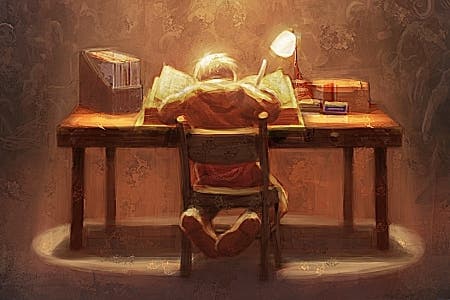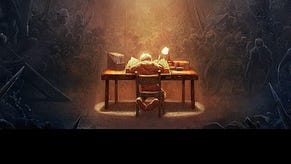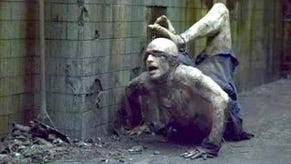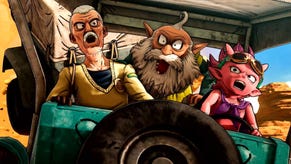Silent Hill: Book of Memories review
The unholy book.
Who can blame Konami's long-running horror series for fleeing its beginnings? Silent Hill was a fearful town of fog and bereavement, of radios incessantly crackling with cautionary static: stay away, stay away. In its close draw distance hid many of gaming's most striking horrors: faceless, stabbing nurses in short skirts and clicking heels, Dobermans gagging entrails from rabid mouths, pyramid-head executioners - and, very often, an absence of action.
Few game series are named after their locations, but then few locations are so memorable as Silent Hill: a town twisted into grotesquely personal shapes by the grief, guilt and lust of its viewer. A town that reflects its visitors' sins back at them - and, therefore, a town few can stand to roam for long. So the Silent Hill series departed its home town. Tentatively at first, with Silent Hill 3, and then more urgently with the fourth game.
For this Vita-exclusive spin-off, Silent Hill the town has been almost completely abandoned. The game instead takes place in a series of esoteric rooms joined by interlocking corridors in six abstract worlds drawn from the psyche of the player character. WayForward's extension of the Silent Hill myth departs more than just its stomping ground, also abandoning the survival horror execution in favour of a quick-paced, top-down exploration game that, for the first time in the series, allows four players to co-operate online.
The shift is disorientating - and the series' staunchest fans, those who revisit game after game in the hope of finding horror keen enough to match Silent Hill's earliest frights, may never recover. There is no cold and brooding in these blood-flecked halls and alleyways, none of that interminable tension that comes from anticipating an injury yet to be delivered. There is, in its place, Diablo-thwacking, chest-looting and a range of character statistics to invest in and improve with the steady stream of experience points you beat from monsters' honeycombed skulls.
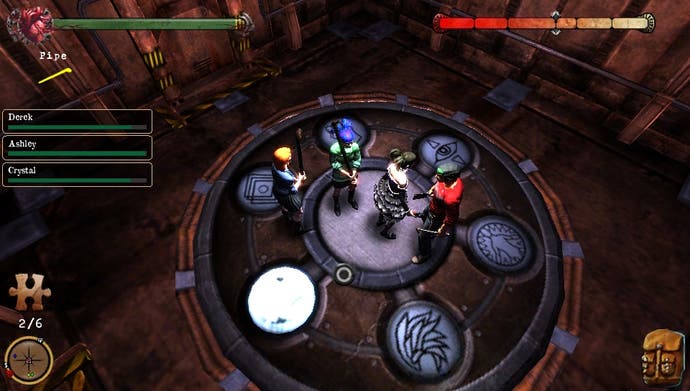
Dig a little deeper and you find that WayForward has kept some of the earlier Silent Hill ingredients, albeit mixed and baked in novel ways. Item management in the face of scarcity of resources - that key component of any survival narrative - is part of this game's spine. You begin with two weapon slots and room in your backpack for a mere handful of bullets and health packs. Weapons degrade rapidly with use and must be regularly repaired with rare spanners, lest they break forever. Guns come loaded but these monsters are greedy for damage and you can easily empty the chamber on a single blood bat as its health bar soaks up the wounds.
Find a new plank or crowbar and you must choose which of your current weapons to discard, while a range of two-handed options limit your choices yet further. Later in the game, when you happen upon the shop sanctuaries tucked in a far corner of a stage, you can upgrade your backpack (using the 'Memory Residue' currency earned from fallen monsters or solved puzzles) to allow you to carry a little more of everything - but the game is successful in communicating a sense that you're always a health pack and a rusty knife away from complete helplessness.
There's a note of 'Metroidvania' to the stage layouts, with a series of locked doors preventing access until you've found a one-size-fits-all skeleton key to unlock progress. An immaculate mini-map shows what areas are left to uncover and, while each room is usually host to a handful of enemies, the emphasis is on collecting the puzzle objects that are needed to unlock the final gate in the stage. A single handwritten clue is also tucked away somewhere in each stage and, if you're at a loss for the solution, you can pay some currency for a more overt clue on the puzzle screen.
"Book of Memories is a curious game: an improbably boisterous departure for a series that has slipped into conservative compromise in recent years."
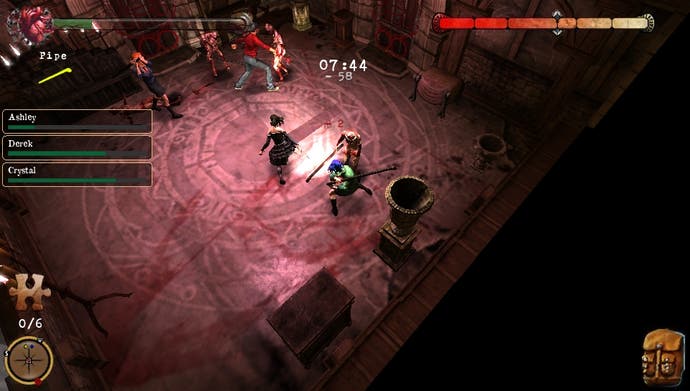
A range of additional, optional tasks supplements this overarching objective. At the start of each chapter a hulking monster issues you with an optional side mission, which, if completed, will net some more powerful loot. While the early stages of the game limit weaponry to obvious tools of murder, as the game progresses and you complete submissions and fell the bosses that punctuate each chapter, so you begin to acquire a more powerful, Diablo-esque arsenal, albeit one that must be maintained with spanners under heavy use.
The story is light, told through a series of notes (which are added to the titular 'book' inventory), audio logs (which play when you clear a room with a television in the corner) and, more abstractly, 'Forsaken Rooms', non-combat locations in which you find a ghostly child in need of rescue. There are three ways in which these rooms can be cleared - by helping the child, hindering it or doing nothing, and your choice in each affects the story's outcome. While nurses, needlers and Pyramidhead all make a return in the game (along with 47 other monster variety types, pain-spotters) the Forsaken Rooms are perhaps the only place in Book of Memories where some of the series' unsettling ambiance is revisited. Elsewhere, this is a dungeon-crawler in all but orc.
Book of Memories is a curious game: an improbably boisterous departure for a series that has slipped into conservative compromise in recent years. The conceit of working through the metaphysical rooms of a troubled mind works, aligns with the series' psychosomatic themes and, happily, is also a comfortable fit for the dungeon-crawler game type. The story layer is just light enough to keep from becoming intrusive, although there's a sense that WayForward has thrown thin sheets of systems at the game to bulk it out, rather than properly exploring or maturing the core ideas. Despite these reservations - despite the shift in tone and despite the recasting of the series' worst horrors as experience-point piñatas - Book of Memories is a successful game on its own terms.
